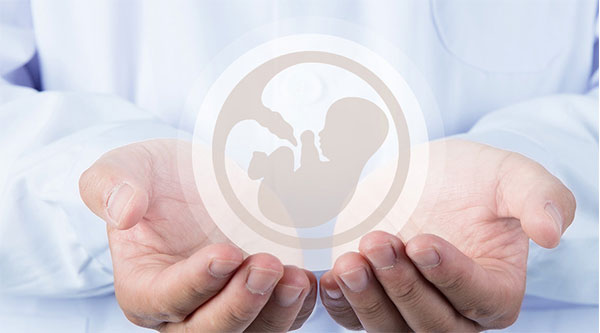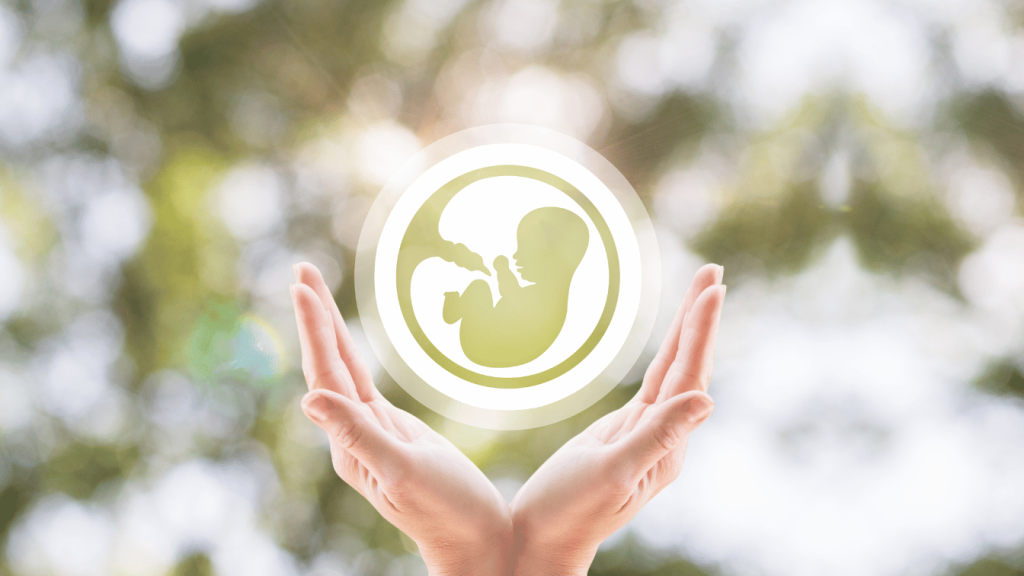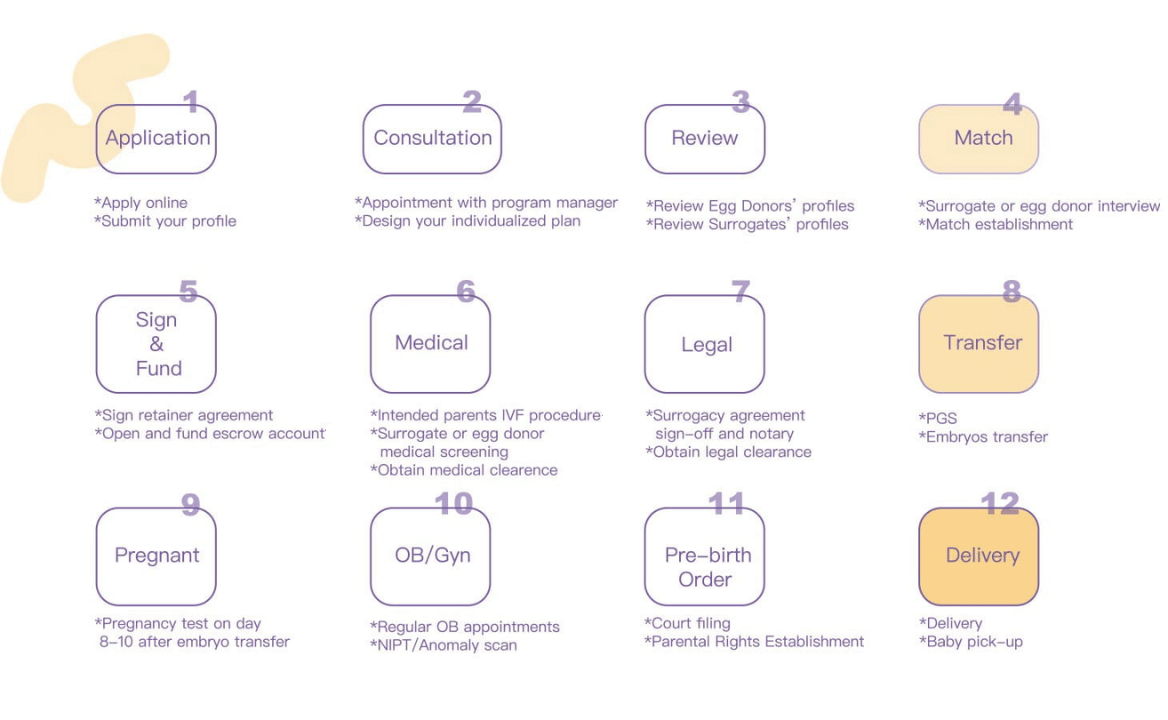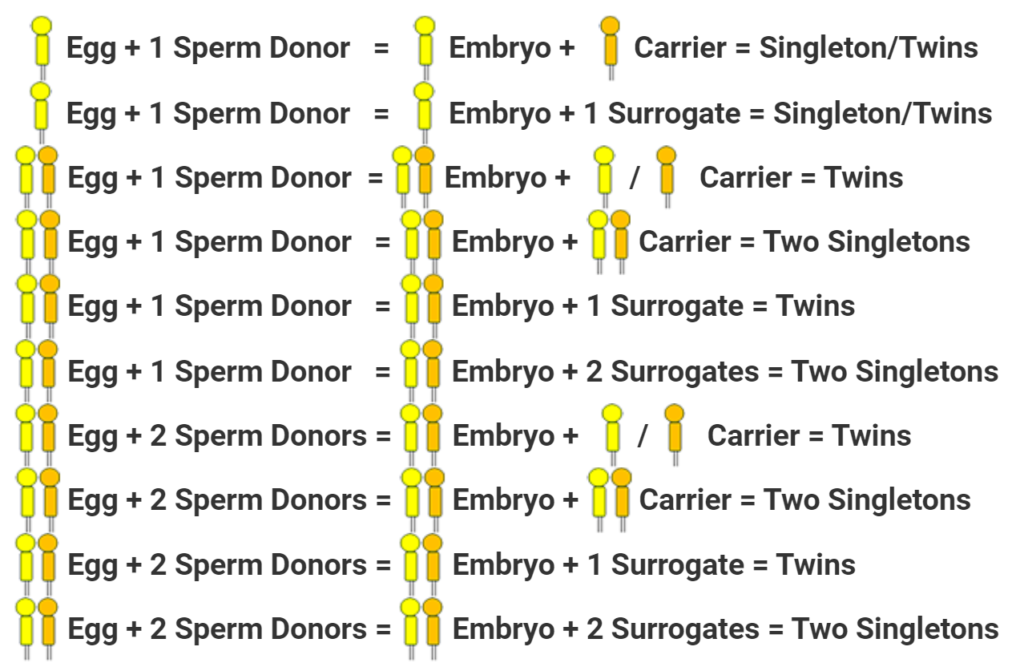Surrogacy Programs For You
OneWorld Generations Group was established by people just like you. Our trained team will be there to help you throughout the process of becoming a parent.
Overview
People just like you are the inspiration behind OneWorld Generations Group. From locating an appropriate surrogate or egg donor to assisting with fertilization and delivering your child, our trained team is here to help you every step as you pursue parenthood.
Becoming a parent via surrogacy usually takes about 13 months, although it might take longer if the fertilization treatments are unsuccessful. Fertilization procedures are affected by several variables, including the quality of the surrogate, the methods used by the physician, the quality of the embryo, and so on.
The process of becoming a parent through surrogacy typically takes about 13 months, and sometimes longer, depending on the success of fertilization procedures, which are influenced by many factors, such as surrogate quality, physician techniques, embryo quality and etc.
Our Programs

Gestational Surrogacy
Gestational surrogacy is a service that we provide. It entails preparing an embryo for implantation into the uterus of a surrogate mother by fertilizing it outside of the body. We will provide from the first screening to the pairing with intended parents, fertility testing, and finally, the birth of your baby.

Gestational Surrogacy Using Egg Donor
Women who are unable to conceive using their eggs for various reasons, such as age, low egg quantity or quality, or genetics, might undergo fertility treatments that include egg donation. We understand that it is not easy to decide on a donor. Throughout the process, you will have the assistance and advice of our committed and knowledgeable donor staff.

Gestational Surrogacy Using Sperm Donor
When it comes to our donor sperm program, we only partner with the most trustworthy and discreet individuals, as we are the top surrogate agency CA. In consultation with our reproductive experts, you can explore your alternatives among our many sperm donor programs.
The Process
Preliminary Free Consultation
We invite you to schedule a consultation with one of our program managers to review our programs’ specifics and alternatives with you. During this meeting, we will cover the legal procedure, surrogacy expenses, insurance details, basic medical information, and matching with a surrogate.
If you feel the need to speak with one of our physicians or visit one of our clinics to learn more about in vitro fertilization (IVF) or the legal procedure, we can make it happen.
We can also arrange you to meet with our doctors and clinics as well to understand more details of the IVF process and legal process if necessary.

Transitioning to a "OneWorld" Family
Suppose you continue working with OneWorld Generations after your free consultation. In that case, a dedicated case manager will be assigned to you to help you through each step. Your case manager will also take care of the practical aspects, including arranging for medical checks and keeping tabs on your in vitro fertilization cycle, among other things.
Your case manager will support embryo production, surrogate matching, and the whole pregnancy and postpartum period.
Your Case Manager will accompany you throughout the whole journey, from embryo creations, to surrogate matching, and to and after the baby is born.

The Matching Process
After our thorough screening procedure is complete, the next step is to locate a suitable gestational surrogate. Depending on the client’s specific needs, the time it takes to find a surrogate could range from one to three months.
However, we have a database of qualified applicants that we can match with you quickly. After a match is established, our case manager will take care of the surrogate’s medical, psychological, and legal screenings. After the necessary legal clearances, both you and your surrogate will officially establish contact.
But we usually have some good candidates in database who can be matched very quickly with you. Once match is confirmed, our Case Manager will arrange psychological screening, medical screening and legal process for your surrogate. When legal clearance is finished, you and your surrogate will formally exchange contact.

Open And Fund Escrow
As part of the surrogacy procedure, we ask intended parents to form an escrow account to ensure the surrogate’s financial safety. The surrogacy arrangement’s financial assets are held and managed by an impartial third party known as escrow. The intended parents can control the management and distribution of the surrogate’s compensation, medical bills, and other associated expenditures by placing money in an escrow account. The surrogacy contract specifies the division of the intended parents’ financial investment, and escrow is a mechanism that guarantees this. It lessens the possibility of wasteful spending by establishing a standard of openness and accountability. In addition to its primary function, the escrow account can mediate monetary disputes and safeguard interests in the case of unanticipated events. In the end, intending parents can rest easy and protect their finances during the surrogacy process by setting up an escrow account.
Surrogate Medical Screening
The surrogate’s medical history, including past pregnancies, births, and any underlying health issues, is reviewed in detail during the first medical examination, that which forming the screening procedure’s basis. Additionally, the doctor will evaluatethe surrogate’s reproductive health using methods such as hormonal assessments and ultrasound scans and by analyzing the results of laboratory tests and physical examinations. To determine if a surrogate is a good fit for the surrogacy process, the IVF doctor can order more specialized testing or confer with other medical experts like psychologists or genetic counselors. The goal of this extensive screening is to choose a surrogate who is physically and mentally healthy, has a minimal risk of problems during pregnancy, and has a solid reproductive profile. The last responsibility of the IVF specialist is to provide the intended parents with medical clearance, confirming that the surrogate they have selected is an excellent fit to bear their child.

Legal Process
Surrogacy agreements are the first legal documents to be signed. They lay out the surrogate and the intended parents’ respective roles, duties, and expectations in a legally enforceable contract. Things like parental rights, medical treatments, and compensation are all covered. Gaining a comprehensive grasp of the surrogate’s rights, the intended parents’ obligations, and any legal factors about the child’s citizenship or insurance coverage is essential.
It is common practice for the attorney representing the intending parents to prepare the paperwork that will enable them to seek a pre-birth order around the 16th week of pregnancy. Doing so after the baby is delivered is standard practice in several states.
A court ruling establishes the intended parents as the child’s legal parents and declares that the surrogate and her partner, if any, are absolved of all responsibility for the child. Again, in certain states, this may occur before the delivery.
In the middle of pregnancy, normally at week 16, the attorney representing intended parents typically drafts a handful of documents allowing them to obtain a pre-birth order. In some states, this will be done after the baby is born.
This order is issued by a court and recognizes the intended parents as the legal parents of the child, and affirms that the surrogate and her partner (if any) are not responsible for the child. Again, this can happen before the birth takes place in certain places.
Embryo Transfer
Placing embryos into the uterus of a surrogate is an integral part of in vitro fertilization (IVF). Several variables dictate the total number of embryos that are transplanted. It is OK for the surrogate to take a nap after the transfer before getting back to her routine. The medical staff perform planned monitoring checkups during the pregnancy. Embryo transfer helps couples who want a family go one step closer to their dream.

Getting Pregnant
This phase starts in the sixth or seventh week of pregnancy, when an ultrasound verifies the presence of a heartbeat, and continues until the baby is born. Your case manager will notify you whenever there are developments with the surrogate.
Feel free to speak with the surrogate as often as possible; we can help with translations whenever needed. Even in the fourth trimester, the legal team will start laying the groundwork for parental rights.
We encourage you and surrogate to communicate with each other as much as possible and we will always be there for translation assistance if needed. The legal team will also begin establishing parental rights at the fourth month of pregnancy.
This phase starts in the sixth or seventh week of pregnancy, when an ultrasound verifies the presence of a heartbeat, and continues until the baby is born. Your case manager will notify you whenever there are developments with the surrogate.
Feel free to speak with the surrogate as often as possible; we can help with translations whenever needed. Even in the fourth trimester, the legal team will start laying the groundwork for parental rights.
To get the hospital ready for a surrogacy birth, your Case Manager will also contact them one to two months before the due date. Now is the time for the legal team to work with you to complete the necessary paperwork for your baby or infants.

Returning Home with the Infant
Upon completion of your tour, the legal team will work within the existing regulations of your state of birth and international legislation to get the necessary papers for your home state or country.
The foreign parents must stay in the state of birth for at least four to eight weeks after their child’s hospital discharge.
For international parents, the estimated time that you will need to remain in the state of birth is approximately 4-8 weeks after the child is discharged from the hospital.

Make OneWorld Great Generations
How To Become Parents










